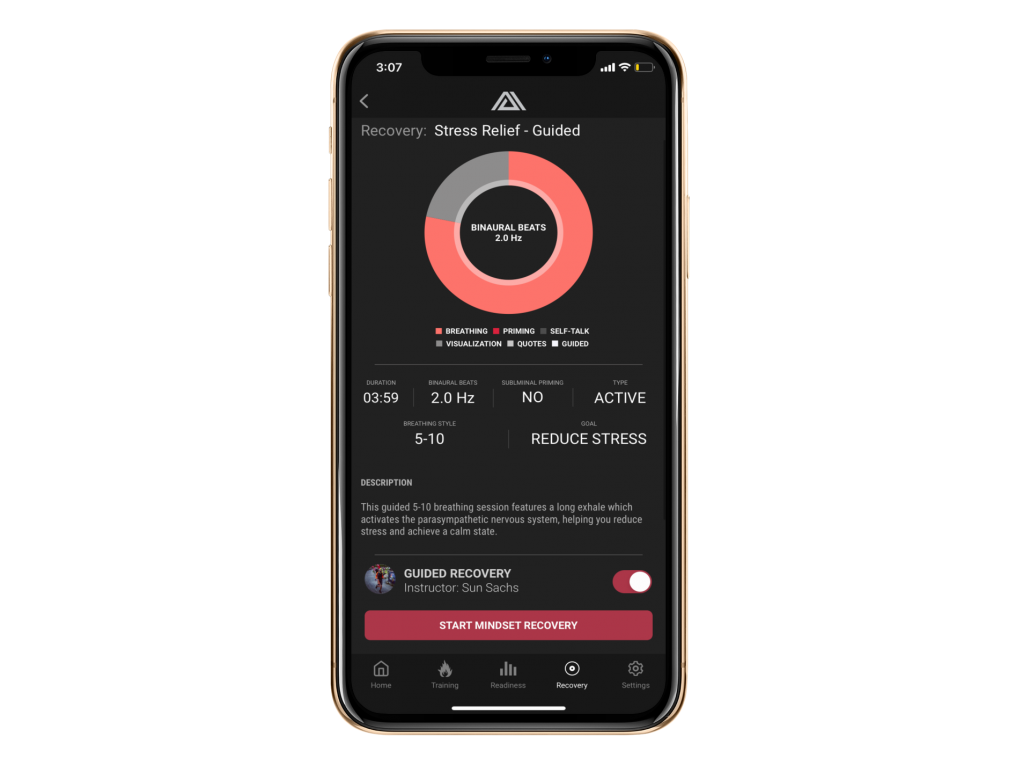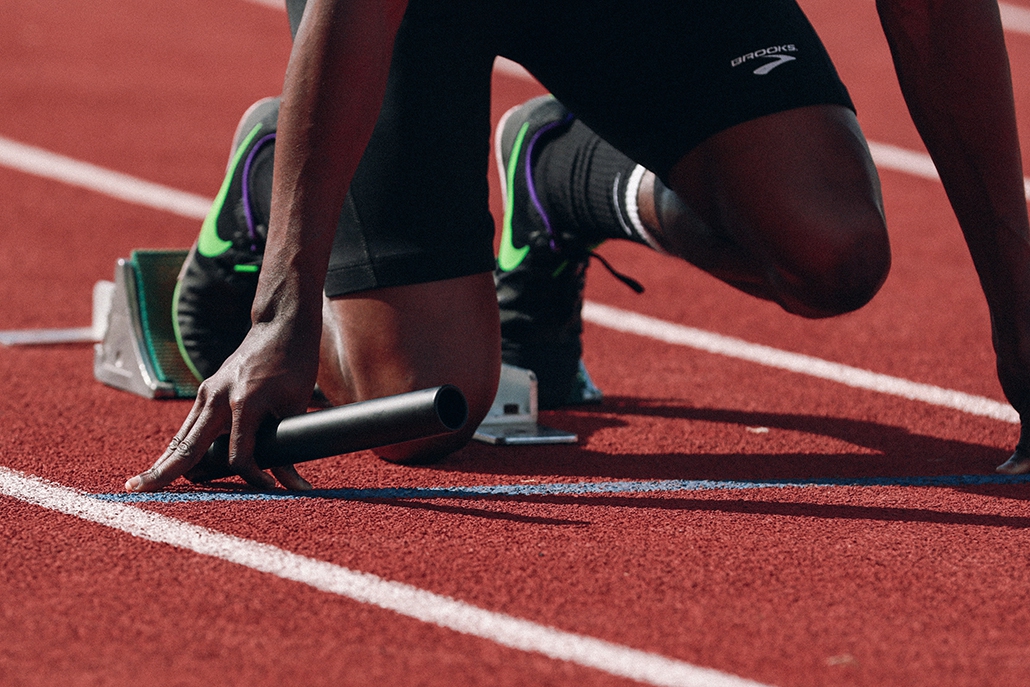Breathing Exercises for Stress Relief: How to Do 5-10 Breathing
Here’s how a simple belly breathing exercise can help reduce stress.
Do you currently feel stressed or overwhelmed? Maybe you feel an intense pressure at work, or maybe you’ve just had a newborn, you’re not getting enough sleep, and you’re feeling more stressed than ever?
Whatever it is, just know that it’s completely normal to feel stressed from time to time.
Stress is the body’s response to pressure. When we feel threatened, our bodies produce the fight-or-flight response. And while this helps us respond quickly to life-threatening situations, experiencing too much fight or flight in our daily lives can have various detrimental side effects.
But as already mentioned, some level of stress is normal. Besides, it shows you care about your work, family, or other commitments.
So, how do you better control and manage stress? This blog post will explain a type of diaphragmatic breathing and other tips to help you reduce stress and focus on what matters most.
How common is stress?
The Mental Health Foundation reported a staggering 74% of people felt so stressed they were unable to cope and felt overwhelmed. The study consisted of an online poll of 4,619 respondents in the UK.
The reasons for feeling stressed varied. But common causes included:
- A health condition or health concern
- Financial stress
- Appearance and body image stressors
- Housing worries
- Pressure to succeed
These are just a few of the many stressors found in today’s society. But there are plenty of other reasons to feel stressed.
Maybe you feel undertrained for your first marathon, you feel stressed about riding your road bike on the road for the first time, or perhaps the demands of working long hours into the evening are finally affecting your mental and emotional capacity.
What are the side effects of stress?
While stress can be useful in small doses, and in the right situations, most of the time, we’d prefer not to be stressed…
You may even find yourself stressing about being stressed – if this sounds like you, then you may benefit from guided breathing exercises for stress relief.
But what are the side effects of stress? According to Mind, If you commonly experience stress, you may feel:
- Irritable or angry
- Overwhelmed
- Anxious, nervous, or afraid
- Depressed
- Neglected or lonely
- Unable to enjoy yourself
- Like your mind is racing
These are just a few of the many side effects. There are also more short-term side effects that you may encounter, such as difficulty breathing, panic attacks, problems sleeping, stomach issues, intense sweating, and more.
Tackling your source of stress is crucial. Maybe that means taking on fewer projects at work, asking for a helping hand, or adding a rest day to your training to unwind and decompress.
You can also try breathing exercises for stress – there are a ton of sessions you can try on the Rewire app.
If you feel stressed and you’re experiencing a mix of side effects that are negatively impacting your day-to-day life, then you might benefit from a visit to a healthcare professional.
Breathing exercises for stress
Breathing exercises, specifically slow breathing exercises, promote comfort and relaxation and reduce symptoms of anxiety, confusion, anger, and even depression, as stated in a 2018 study.
Adding breathing exercises to your daily routine can help combat stress.
You don’t need to perform these at the same time every day, either. You can do breathing exercises for stress when you need them most.
Alternatively, you can also try guided meditation and breathing exercises, usually done first thing in the morning or right before bed.
The 5-10 breathing exercise
5-10 breathing is a form of diaphragmatic breathing, also called belly breathing – this is where you inhale through your nose and exhale out through your mouth.
This breathing exercise for stress relief sends signals to your brain and nervous system to help reduce stress and other emotional responses (anxiety, fear, etc.) . In particular, it’s the long exhale that activates the parasympathetic nervous system (and deactivates the sympathetic nervous system) to calm the body down. It may take a little while to get used to, but with a little practice and the helping hand of our guided session, you’ll be on your way to a less stressful day.
So, how do you do it?
Inhale through your nose to the count of five and exhale through your mouth to the count of ten. That’s one breath.
Repeat as needed – typically, you want to perform this exercise for at least 2 minutes to feel the full effect.
Benefits of diaphragmatic breathing include improved cognitive performance and reduced stress. It may also lower your blood pressure and heart rate.
It’s a relatively easy breathing exercise to learn and can be done anywhere, making it a great tool for stress relief when you need it most.
The Rewire mindfulness and recovery protocol for stress relief
The Rewire app contains a mix of mindfulness and recovery protocols that use breathing exercises and binaural beats to help facilitate certain emotional responses, whether that’s stress relief, improved focus, or relaxation.
We have a few stress relief sessions on the Rewire app, but the guided stress relief session is our most popular session for stress reduction – more on this below.
Mindset Recovery – Stress Relief

The Rewire stress relief guided recovery session uses the 5-10 breathing technique and 2 Hz binaural beats to help alleviate stress and achieve a calm state of mind. On average, Rewire users report a 70% decrease in stress after a 2-minute session.
It takes less than 4 minutes to do, can be done anywhere, and will leave you feeling less stressed.
If you have Rewire downloaded on your mobile device, tap here to try ‘stress relief’.
Reduce stress with Rewire Fitness
Rewire can help you combat stress to improve your day-to-day life.
Start using the Rewire Fitness app for free to help reduce stress when you need it most. Take control of your emotional response and improve your day-to-day well-being and stress levels, increasing presence and allowing you to focus on what matters most.
References:
Gerritsen, R.J. and Band, G.P., 2018. Breath of life: the respiratory vagal stimulation model of contemplative activity. Frontiers in human neuroscience, p.397.
Ma, X., Yue, Z.Q., Gong, Z.Q., Zhang, H., Duan, N.Y., Shi, Y.T., Wei, G.X. and Li, Y.F., 2017. The effect of diaphragmatic breathing on attention, negative affect and stress in healthy adults. Frontiers in psychology, p.874.
Mental Health Foundation. n.d. Stress: statistics. [online] Available at: <https://www.mentalhealth.org.uk/explore-mental-health/mental-health-statistics/stress-statistics> [Accessed 1 October 2022].
Mind. 2022. Signs and symptoms of stress. [online] Available at: <https://www.mind.org.uk/information-support/types-of-mental-health-problems/stress/signs-and-symptoms-of-stress/> [Accessed 1 October 2022].
Zaccaro, A., Piarulli, A., Laurino, M., Garbella, E., Menicucci, D., Neri, B. and Gemignani, A., 2018. How breath-control can change your life: a systematic review on psycho-physiological correlates of slow breathing. Frontiers in human neuroscience, 12, p.353.









